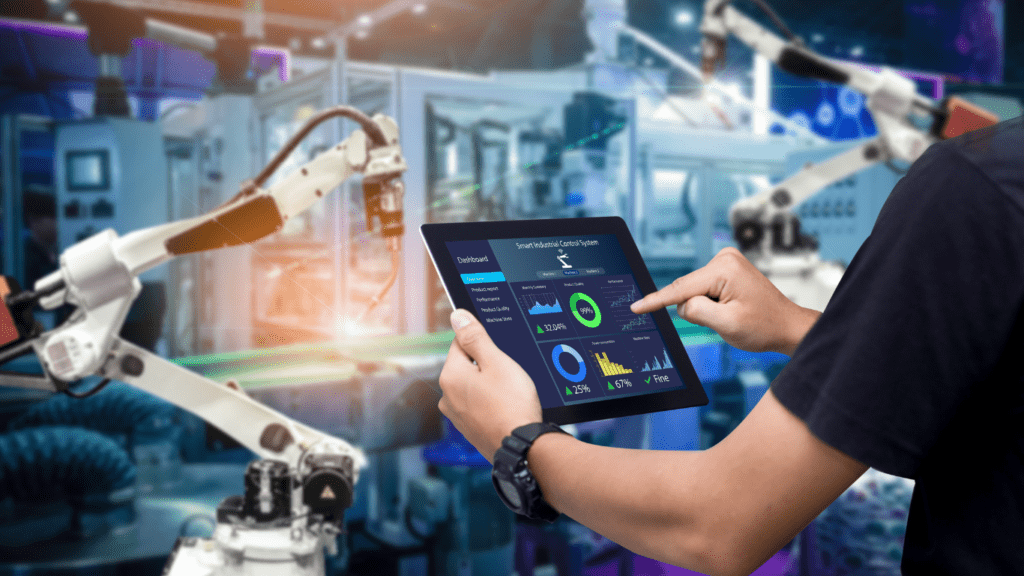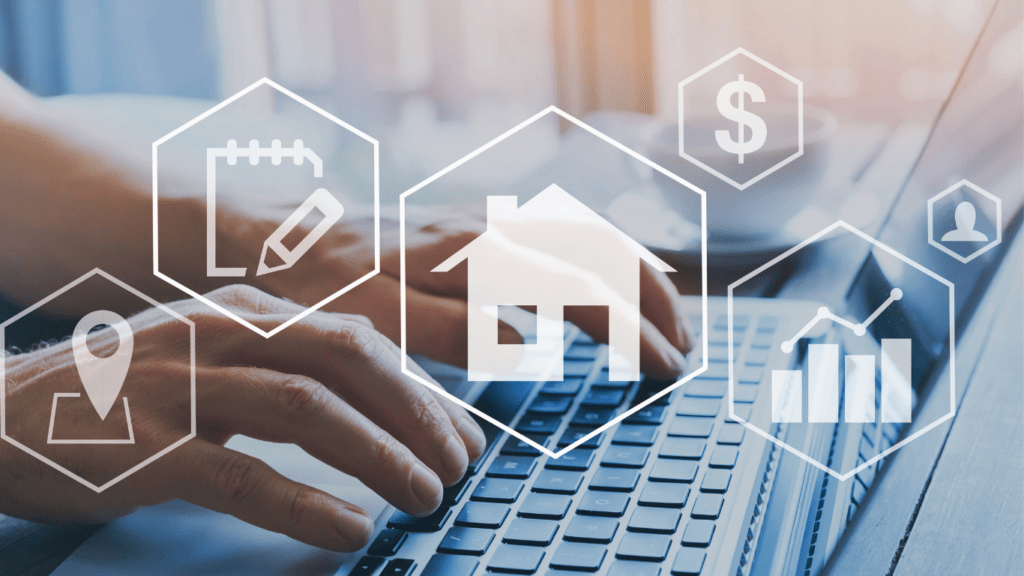The Impact Of Technology On Commercial Real Estate
Technology continues to redefine commercial real estate, transforming how properties are bought, managed, and leased. Its adoption integrates automation, analytics, and innovation into an industry historically reliant on traditional methods.
Trends Driving Technological Change
- Proptech Growth
Proptech startups are expanding rapidly, introducing platforms for property management, leasing, and data analysis. Examples include companies like VTS and Reonomy, which improve decision-making through AI-driven insights. - Remote Capabilities
Virtual property tours and 3D visualization tools eliminate the need for physical visits. Platforms like Matterport enable immersive experiences, making it easier for clients to evaluate properties. - Increased Automation
Smart contracts in blockchain streamline transaction processes. Automated systems reduce errors and enhance transparency in lease agreements and sales. - Data-Driven Decisions
Advanced analytics platforms provide actionable insights on property performance, tenant behavior, and market trends. Tools like CoStar and RealPage offer real-time data, influencing investment decisions. - Sustainability Technologies
Eco-friendly innovations like energy-monitoring sensors and green building designs are gaining traction. These technologies align with increasing regulatory demands for sustainable practices in real estate.
- Property Management
IoT devices optimize building efficiency by automating systems like HVAC, lighting, and security. Landlords use platforms to streamline maintenance and track real-time performance metrics. - Tenant Experience
Mobile applications enhance tenant engagement by enabling services such as booking amenities or reporting issues. Tech-driven platforms create a seamless tenant experience, boosting client retention. - Marketing and Leasing
AI algorithms personalize marketing campaigns and identify ideal tenants. For example, smarter lease management tools simplify document tracking and improve communication between parties. - Transaction Processes
Blockchain reduces paperwork and ensures data security during property transactions. Seamless, digitized processes improve speed and trust compared to traditional methods. - Workspace Optimization
Smart office systems monitor space usage, providing actionable insights into occupancy trends. Companies like Envoy help businesses design adaptive workplaces, aligning with shifts in hybrid work models.
PropTech: Revolutionizing The Industry

PropTech is transforming commercial real estate by integrating cutting-edge technologies into property management, transactions, and tenant experiences. These innovations are enhancing efficiency, sustainability, and operational clarity.
Smart Buildings And IoT Integration
Smart buildings, leveraging IoT devices, optimize energy usage, security, and maintenance. IoT sensors monitor systems like HVAC, lighting, and water usage to reduce operating costs and improve sustainability. Tenant apps connected to IoT provide real-time updates on building services, creating a seamless user experience. For example, occupancy sensors adjust lighting and temperature based on activity levels, which conserves resources while ensuring comfort.
Smart security systems, using IoT technology, enhance access control by enabling keyless entry and remote surveillance. Building managers receive alerts for equipment failures or unusual activity, allowing faster response times. Predictive analytics from IoT devices reduce downtime by addressing maintenance before breakdowns occur.
Virtual And Augmented Reality In Real Estate
Virtual and augmented reality (VR/AR) redefine property showcasing and planning. VR enables remote property tours, eliminating the need for physical visits while providing a detailed walkthrough experience. Prospective tenants can visualize spaces as if they were there, viewing features like layouts, amenities, and even lighting conditions.
AR enhances design and customization by overlaying digital elements onto real-world views. Tenants and investors preview renovations or furniture placements through mobile apps, saving time and resources. For example, AR applications showcase potential office layouts, helping clients envision how a property could meet their needs.
VR and AR tools also support collaborative planning between stakeholders by creating interactive 3D models. This accelerates decision-making and reduces misunderstandings in commercial real estate projects.
Data And Analytics In Decision Making
Technology is driving data-centric approaches in commercial real estate, transforming how industry professionals make decisions. Advanced analytics tools and big data are providing actionable insights, paving the way for informed strategies and enhanced outcomes.
Predictive Analytics For Market Trends
Predictive analytics enhances decision-making by forecasting market trends using historical and real-time data. These tools identify patterns and predict future property values, rental rates, and vacancy rates. For example, property managers analyze demographic shifts, economic indicators, and consumer behavior to anticipate demand in specific regions. Such insights reduce risks, enabling timely investments or divestments based on anticipated market changes.
Predictive models also help compare properties across similar markets. They evaluate variables like foot traffic, proximity to transit hubs, or property age to assess long-term potential. This data supports strategies aligned with emerging trends, such as the growing preference for mixed-use developments.
The Role Of Big Data In Investment Strategies
Big data consolidates vast amounts of information from diverse sources, offering investors a comprehensive view of the market. Platforms aggregate property records, leasing data, and historical transaction information to reveal unique opportunities. For instance, analysis of tenant behaviors through IoT devices helps evaluate properties with high retention potential, crucial for maximizing returns.
Big data analytics also assist in portfolio optimization. Investors assess risk exposure by examining performance metrics or socioeconomic trends in a region. Insights like these offer clarity when diversifying assets or entering new markets, promoting targeted and profitable investment strategies. Additionally, methods like heat maps pinpoint locations with unexploited potential, guiding data-backed asset allocation decisions.
Automation And Artificial Intelligence
Automation and artificial intelligence (AI) are revolutionizing commercial real estate by improving operational efficiency and customer engagement. These technologies streamline labor-intensive processes and deliver personalized solutions, reshaping how properties are managed and experienced.
Streamlining Real Estate Operations
Automation eliminates repetitive tasks in real estate operations, such as data entry, lease management, and financial reporting. AI-powered platforms analyze lease agreements, identify patterns, and flag discrepancies, reducing manual errors. For instance, machine learning models forecast maintenance needs based on historical data, enabling proactive property upkeep.
AI tools driven by natural language processing simplify transaction workflows, including contract drafting and compliance assurance. Automated valuation models (AVMs) offer real-time property valuations using market data, cutting dependency on manual appraisals. Chatbots handle tenant inquiries around the clock, enhancing response times for routine requests like service tickets or rent reminders.
Enhancing Customer Experiences
AI enhances customer experiences by offering personalized tenant services through algorithms that analyze preferences. For example, property management platforms recommend amenities or services tailored to individual tenant needs. Virtual assistants embedded in mobile apps provide seamless communication and services, improving engagement.
AI-driven predictive modeling tracks occupancy trends, supporting optimal space allocations and suggesting upgrades to meet tenant demands. Virtual and augmented reality (VR/AR)-powered technologies, combined with AI, personalize virtual tours by highlighting features specific to tenant interests, offering immersive and relevant viewing experiences remotely.
The Future Of Commercial Real Estate
Technological advancements are driving unprecedented changes in commercial real estate, creating opportunities for innovation while presenting challenges for adaptation. Key shifts are emerging through the adoption of cutting-edge tools and systems.
Emerging Technologies To Watch
Several technologies are redefining commercial real estate operations and strategies:
- Digital Twins: These virtual models replicate physical spaces, enabling real-time simulations for property performance, energy efficiency, and maintenance scenarios. For example, developers use digital twins to optimize construction processes and manage operational efficiencies post-completion.
- 5G Connectivity: Ultra-fast 5G networks enhance IoT capabilities within smart buildings, improving system integrations for security, monitoring, and tenant comfort. Enhanced bandwidth supports remote working solutions and augmented reality applications.
- Edge Computing: By processing data closer to the source, edge computing reduces latency in managing IoT data, boosting the performance of smart building systems and enhancing responsiveness in real estate automation workflows.
- Blockchain Integration: Beyond smart contracts, blockchain ensures secure, transparent data sharing in property transactions, reducing fraud risks and operational bottlenecks. Companies applying blockchain streamline cross-border investments and verification workflows.
Challenges And Opportunities Ahead
The adoption of technology brings both hurdles and potential benefits to the commercial real estate landscape.
- Challenges: Integrating advanced technologies often requires significant investment, posing affordability issues for smaller firms. Cybersecurity is a growing concern as digitized systems become prime targets for breaches. Additionally, adapting legacy infrastructures for modern tools demands time and expertise, slowing adoption rates.
- Opportunities: Once implemented, these technologies enhance operational efficiency and tenant satisfaction. Automation, for instance, cuts labor-intensive processes, while predictive analytics refines investment strategies. Sustainable technologies reduce operating costs and align properties with green building certifications, boosting property values and marketability.
Navigating these challenges while leveraging opportunities positions firms to thrive within the ever-evolving commercial real estate market.

 Kenneths Houstonamic established Mode Key Homes to provide real estate enthusiasts, professionals, and homeowners with valuable insights. His vision drives the platform’s focus on market trends, sustainable housing, and property management, helping readers make informed decisions in the ever-evolving real estate landscape.
Kenneths Houstonamic established Mode Key Homes to provide real estate enthusiasts, professionals, and homeowners with valuable insights. His vision drives the platform’s focus on market trends, sustainable housing, and property management, helping readers make informed decisions in the ever-evolving real estate landscape.